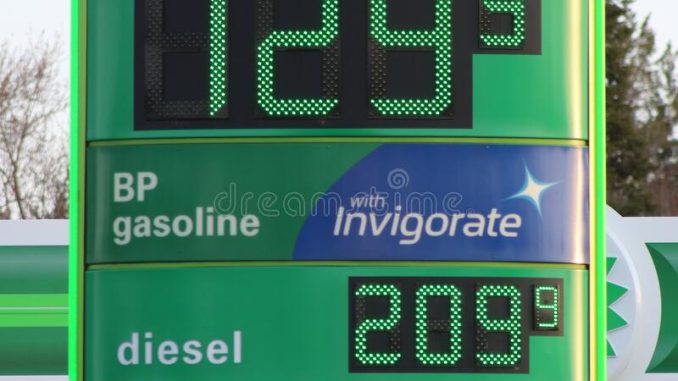
Crude oil is currently trading at a price of $85 per barrel. This is about 8 percent lower than last week’s average price.
Oil prices have fallen yet again, this time lower than $100 per barrel. With this comes concerns about recession fears in the market, but this has also resulted in another drop in the US benchmark price of oil.
It’s predicted the price of oil will drop to $50 per barrel by the end of the decade. That will cause fears of a global recession which will cause a lower demand for petroleum products.
The first question that I ask potential clients about their financial situation is: “What’s going on with the economy?
The entire market is shocked, but barely managing to stay afloat.
The global market has been in the mud since Russia stomped Ukraine on 24th February.
The war triggered fears about a worldwide shortage of a wide variety of supplies, including those from Russia, which is an important supplier for many locations, including Europe.
U.S. Oil Benchmark Below $100 as Possible Recession Affects
Oil prices crashed yesterday because there’s so much oil out there.
The price of oil has plummeted to $97 a barrel today, after losing over 10% overnight.
The last time the oil benchmark traded under $100 was on 10th April. As international benchmark Brent crude settled at 9.45% or $10. 73 losing a little ground to last week’s high of $102.77.
Oil trading advisory firm, Ritterbusch & Associates predicts that oil prices will plunge in the US as a result of an upcoming recession. The price of oil will rise because of tight supplies and because of a possible economic recession.
In a note to clients, the firm wrote that oil prices have dropped on lower demand for gasoline and diesel, a decline that will benefit consumers at the pump.
Diesel and gasoline are both on the decline for October. Both had posted substantial gains for the first three months of the year.
It’s unclear whether the economic outlook will improve, but this has lowered the demand for oil and other commodities, contributing to the decline in oil prices and gas.
In response to a recent downturn in crude oil prices, investment banking firm Citigroup (NYSE.C) said Brent oil prices could fall to $65 a barrel by the end of 2022 if the U.S. economy enters a recession.
In a recession scenario with rising unemployment, household and corporate bankruptcies, commodities would chase a falling cost curve as costs deflate and margins turn negative to drive supply curtailments, the bank wrote.
Citi is known to be an oil bear even when other firms are more positive about oil prices. Goldman Sachs once predicted that the price of oil would reach over 140 dollars per barrel.
Since 2008, And oil prices high
In May 2014, oil hit its lowest point in decades, falling to $96. 30 per barrel.
Since Brent’s share price dropped, it’s reached its highest level since 2008.
Oil prices have slowly declined since the 2014 record price, but the US benchmark has struggled along the way.
Despite the current situation, some experts believe oil prices will remain stable.
According to Head of Commodity Strategy at TD Securities, Bart Melek, “recessions don’t have much of a track record of killing demand. Product inventories are at critically low levels, which also suggests restocking will keep crude oil demand strong.”
Amid its ongoing financial crisis, Celsius has paid off another sizeable sum of its debt to Maker as it fights to stay afloat.
The shares of American cryptocurrency exchange, Coinbase, have fallen in the premarket following the downgrading call by analysts from the investment banking giant, Goldman Sachs Group.
